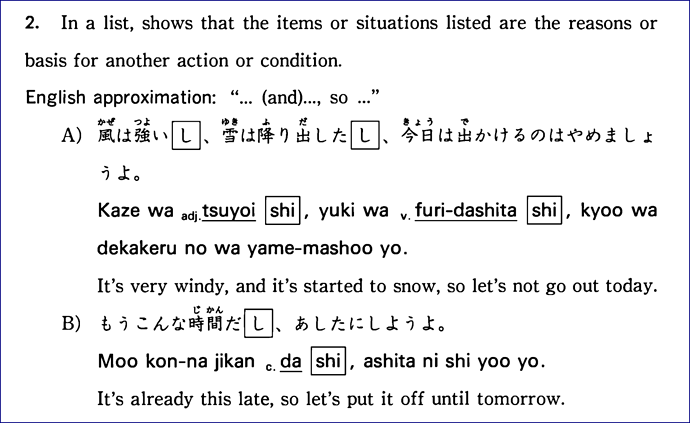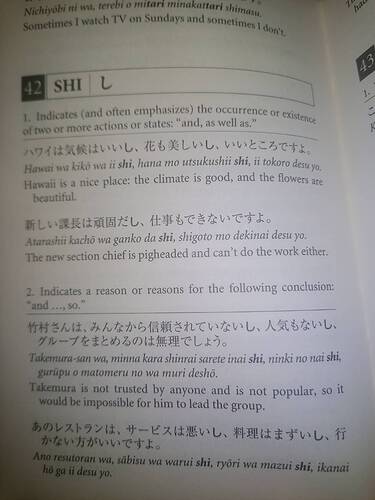In one of the みえる example sentences, there’s a し I don’t entirely understand:
「遠すぎるし書かれていることがみえないよ。」
I know it’s used to list reasons. Can it also be used after a single reason to indicate that it’s a reason for whatever follows? Is that what’s going on here?
Basically yes.
I don’t like the Genki explanation that says it is used to list reasons. I feel like it comes across a bit strange.
色々な種類があるし魚がおいしいし安いし私は寿司が好きです。
↑ I dunno if anyone wants to agree or disagree with me here, but whilst this is probably grammatically correct, I can’t see anyone ever saying it in any conversation or in any article ever…
Something about it just seems… odd. I can’t explain it.
Thanks, everyone 
That’s interesting, I wonder why that is. It seems a little clunky, but then I’ve seen a number of Japanese Wikipedia articles where the sentences seemed to go on for far longer than I’d expect in English. Perhaps that has more to do with how long it takes me to get through a sentence, though!
In terms of differing usages and opinions for anyone landing on this page: Many natives will also list reasons with it and omit the final clause if it is obvious by context/a response. Additionally, my friend who is a writer from Kyushu (just a travel writer, mind) advised me to use ので・だから to close the final reason when writing a list “properly”, but that may just be her preference as in many text books I see, ホニャララし、ホニャララし、ホニャララです。
Attached is an image from “All about particles”. Aside from the roumaji eye bleach, I thoughly recommend this book for those “why are they using this particle” times. Pick up the book, check your sentence against the list of different uses, pick the one that fits best, and 95% of the time it will be correct. This book states “a reason or reasons”. No googling or guessing, just a 20 second skim of nearly every reason for nearly every particle.
Thanks. Can I ask what ホニャララ is?
JMdict’s definitions for ほにゃらら are
- something something
- something or other


